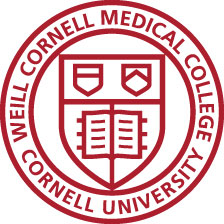
I was diagnosed with multiple sclerosis when I was 26 years old, though I knew something was wrong for months. I couldn’t stay awake. I was confused. I had memory loss, numb feet, blurry vision, and sometimes saw double. But because I was overweight, almost every doctor I saw told me to lose weight, as if that would solve everything. They weren’t entirely wrong—I did need to lose weight—but weight loss wasn’t going to stop the flare that was happening in my spine.
I was 25 when the symptoms started. They affected my relationships, my work, and my ability to function. It couldn’t continue. Finally, on my 11th doctor, I asked for an MRI of my brain. Most of my symptoms were neurological—it made sense to me. He didn’t think it would show anything but, kindly, he obliged.
"You have masses in your brain. You need to go to the MS Center at Weill Cornell."
That was the worst phone call I have ever received. I later realized he said “masses” instead of “lesions” to emphasize the urgency of the situation, but in the moment, all I felt was fear.
That day, I met my 12th doctor, and six years later, I am still with her. A good doctor changes everything. When you find one who understands you, who you click with, it makes all the difference. The first thing I asked Dr. Kaunzner when I met her was, “Can I run a marathon?” She smiled and said, “Maybe not this year. But next year? That’s doable.”
Multiple sclerosis changed my life. I saw this as a chance to make my life better, rather than succumb to it. I discovered my love for running, I changed my sleeping habits, I meditate, do yoga, and somehow along this journey changed careers. There wasn’t a singular moment that made me transition from filmmaker to psychologist, but if I had to pinpoint one, it would be in the infusion room.
I was sitting next to a man receiving his first round of steroids. He was crying quietly to himself. I asked if he wanted to talk. He told me he had just been diagnosed with MS and didn’t know what that meant—not just for himself, but for his family. He asked if he would still be able to work, if he could support his family, and whether they would think less of him.
I wasn’t an expert, but I could tell him one thing with certainty: his family would still love him.
As we talked, I learned that the type of MS he had was relapsing-remitting (RRMS). If caught early, many people go on to live mostly normal lives. I told him what I had learned over the past year, and for two hours, we talked. Before I left, we shook hands, and he held onto mine for an extra moment.
"Thank you," he said.
I didn’t give him anything tangible—no cure, no solution—but he appreciated having someone to listen. Someone who had been in his shoes.
As I walked out of the chemo room, I thought back to the first time I had set foot in there, alone. When I was in his position, I had no one. No friends, no family, no one to explain what was happening to me. Being able to offer even a small amount of encouragement to someone else remains one of the most fulfilling moments of my life.
It’s terrifying to be told you have an incurable illness. But I have been able to do some good with mine. Beyond my experience with Miguel, I led a team that raised over $11,000 for MS research in 2019, bringing awareness to my own community. Neither moment was more fulfilling than the other, but both were rewarding in their own ways.
One year after my diagnosis, I ran the New York City Marathon—having never run more than ten miles in my life. The fear of never walking again took hold, and I ran. I ran right at the disease, full steam ahead, attacking it with every weapon at my disposal: proper health and nutrition, physical activity, therapy, support groups, writing—even working on a film about it.
But nothing helped like running.
In those early days, there were mornings I had to physically lift my legs out of bed just to stand up. Sometimes, my “MS leg”—as I called my right leg—would simply stop working. But I had a goal: the five boroughs of my home city to run through and, hopefully, thousands of miles ahead of me. The marathon wasn’t a one-off event for me; it was a lifestyle change. I knew I couldn’t run MS out of my body—but I was going to try.
Since my diagnosis on September 18, 2018, I have run four marathons, more half marathons than I can count, and over 3,000 total miles. Last year, I completed my first triathlon, and this year, I will attempt to do both a triathlon and a marathon in the same year.
MS changed my life in ways I never expected. And in many of those ways, it changed my life for the better.
More than five years after my diagnosis, I am symptom-free most days, and you would never know I have a chronic illness. I’m not naïve enough to think my fight for my health is over—far from it. But in working to heal myself, I’ve found deep fulfillment in helping others as well.

